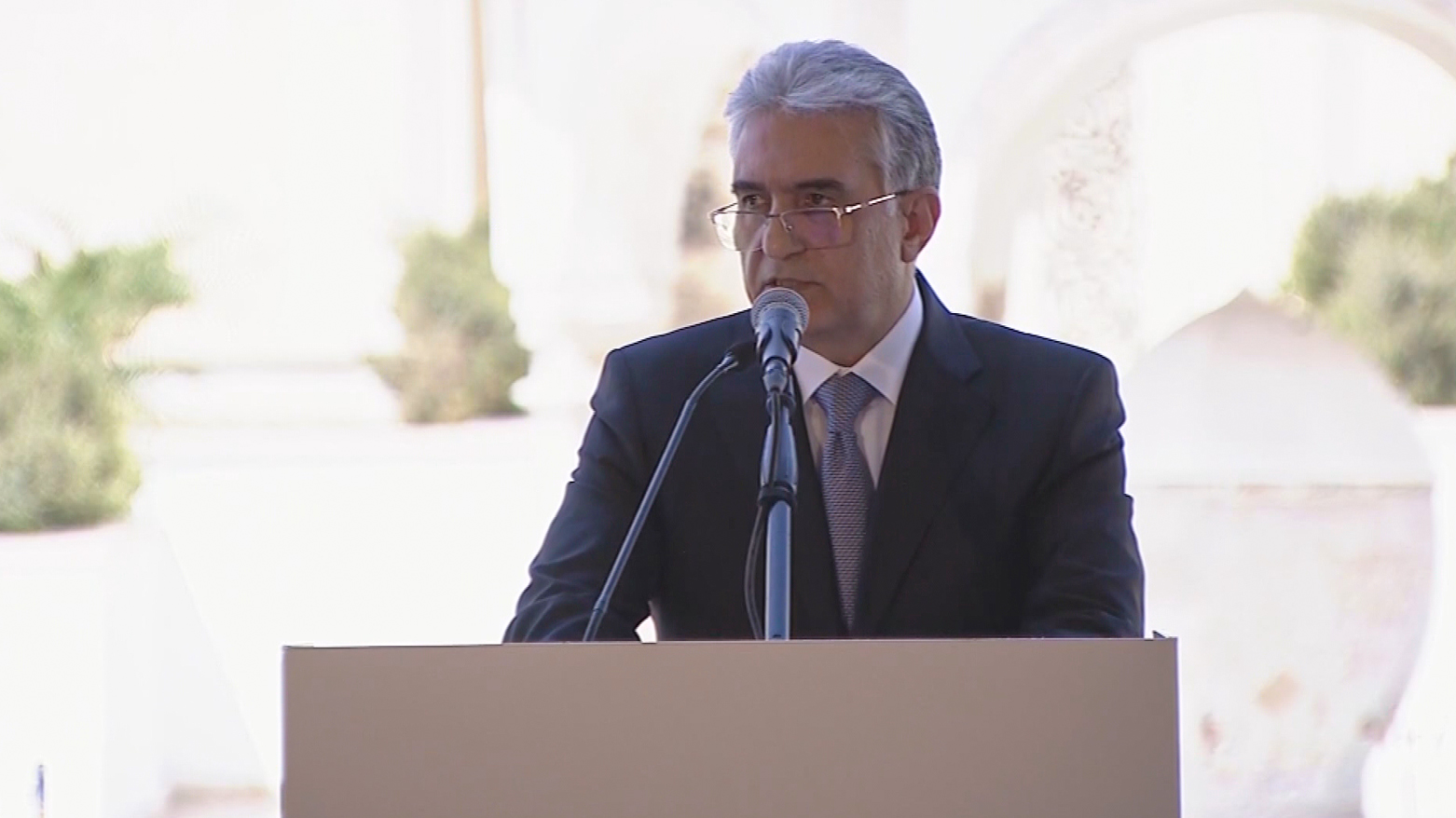KRG Interior Minister Calls for Implementation of Article 140 and Sinjar Agreement
Ahmed emphasized the importance of unity and reconciliation, saying, “What unites us is much greater than what separates us.”

ERBIL (Kurdistan24) – Kurdistan Regional Government (KRG) Interior Minister Rebar Ahmed on Monday stressed the importance of implementing Article 140 of the Iraqi constitution and the Sinjar agreement.
Minister Ahmed delivered his remarks during the opening ceremony of the Great Mosque of Noor and the churches of Tahira and Sa’a, where he represented the KRG. The event was attended by Iraqi Prime Minister Mohammed Shia al-Sudani, Mohamed al-Hassan, Special Representative of the UN Secretary-General for Iraq and head of UNAMI, a high-level UAE delegation, and several Iraqi ministers and officials.
“The crimes of terrorist groups, especially in Mosul, the Nineveh Plain, and Sinjar, will not break our people’s will to survive and coexist,” Ahmed stated. “They targeted churches, committed massacres against Yezidis, and displaced Christians and all communities of Nineveh.”
The Minister praised the sacrifices of Iraqi forces, including the Peshmerga, noting their critical role in liberating Mosul from ISIS. “The Peshmerga stood on the front lines and opened the gates of liberation of Mosul to the federal forces,” he said.
Ahmed emphasized the importance of unity and reconciliation, saying, “What unites us is much greater than what separates us.” He also called for the swift implementation of the Sinjar agreement to enable the return of more than 300,000 displaced Yezidis to their homes “with respect and dignity.”
Highlighting constitutional solutions to long-standing disputes, Ahmed stressed that implementing Article 140 is essential for justice, stability, and strengthening brotherhood among Iraq’s diverse ethnic and religious communities.
Meanwhile, Kurdish farmers in Kirkuk are urging Kurdish political parties to unite and address the systematic dispossession of their ancestral lands and the lack of basic services in their communities. They highlight ongoing issues like land seizures based on defunct Ba'ath-era laws, legal intimidation, and the marginalization of Kurdish residents in Kirkuk.
Recent events in villages like Tapa Sawz illustrated the escalating conflict, where Arab settlers, backed by state security forces, are attempting to claim Kurdish farmlands. Despite legal victories and strong condemnation from the Kurdistan Region leadership, the farmers continue to face harassment, including arrest warrants and restrictions on working on their land.
The struggle is rooted in Saddam Hussein's Arabization policies, which Article 140 of the Iraqi Constitution was meant to reverse, though its implementation remains stalled. The farmers' plea for unity underscores their belief that a unified Kurdish front is essential to reclaim their rights, protect their heritage, and secure a just future.
Read More: Kirkuk Farmers Urge Unified Kurdish Front to Defend Lands and Rights
The Sinjar Agreement, established in 2020, is a deal between the Iraqi government and the KRG aimed at stabilizing the Sinjar district in Iraq. This agreement seeks to create new security and administrative structures that would facilitate the return of ISIS-displaced Yezidis. Key objectives include removing armed groups, ensuring the return of displaced individuals, and managing the district jointly under Baghdad's authority. However, the agreement has only been partially implemented due to resistance from local armed factions, such as the Sinjar Resistance Units (YBŞ).